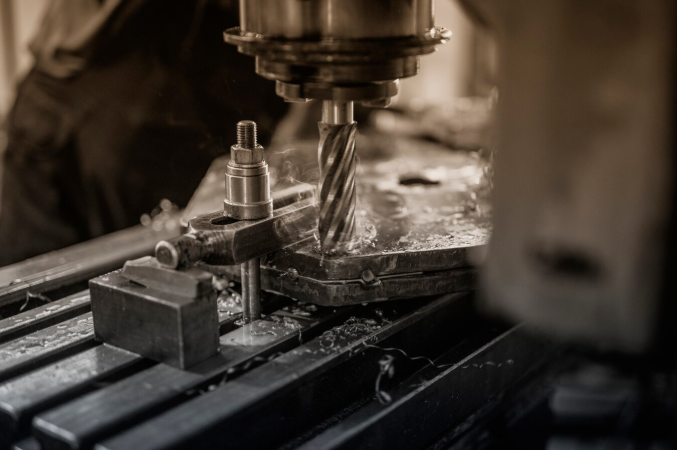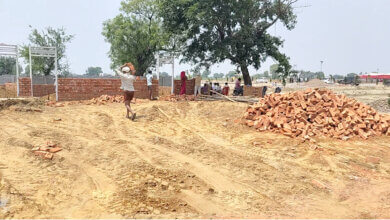How CNC Swiss Machining Delivers Unmatched Accuracy for Complex Components


In current manufacturing, producing complicated components with extraordinary precision is vital throughout a wide variety of industries—whether it’s aerospace, clinical devices, electronics, or car components. Achieving this stage of accuracy consistently requires a superior era, and that’s where CNC Swiss machining shines. This innovative machining method gives unequalled precision for producing problematic, small-diameter components with tight tolerances and complicated geometries.
This blog dives deep into the arena of CNC Swiss machining, explaining how it works, why it is uniquely ideal for high-accuracy manufacturing, and the way the associated approach of Swiss screw machining complements it to fulfill the disturbing needs of today’s excessive-tech industries.
What Is CNC Swiss Machining?
CNC Swiss machining is a specialised form of turning era designed to manufacture lengthy, slim parts with extremely excellent element and dimensional accuracy. Unlike conventional turning in which the cutting tool moves along a rotating workpiece held at one end, Swiss machining uses a sliding headstock that pushes the cloth via a manual bushing.
The manual bushing plays a crucial position—it helps the workpiece close to the reducing tool, minimizing deflection, vibration, and bending. This aid is essential whilst machining small-diameter, excessive-issue-ratio additives that could in any other case be susceptible to flexing underneath reducing forces.
The end result is a procedure capable of producing additives with micrometer-level tolerances, first-class threads, and complex multi-function non-stop operation.
Why CNC Swiss Machining Is the Benchmark for Accuracy
Guide Bushing Support for Stability
The near help provided by way of the guide bushing is the cornerstone of CNC Swiss machining’s accuracy. By stabilizing the element without delay while it’s being reduced, it prevents the natural bending or vibration that might in any other case lessen dimensional manipulation. This is in particular critical while machining elements that are long relative to their diameter, along with medical needles or small shafts, wherein even moderate deflections can motivate unacceptable deviations.
Multi-Axis Simultaneous Control
Swiss CNC machines are equipped with multiple axes—often four to six—that flow equipment simultaneously. This capability permits complex shapes, more than one diameters, grooves, threads, and features to be machined in an unmarried setup without repositioning the workpiece. Eliminating multiple setups reduces cumulative errors and substantially complements element-to-component consistency.
High-Speed Precision with Minimal Heat
Because the manual bushing stabilizes the part, CNC Swiss machining can be carried out at higher cutting speeds while keeping precision. Faster reducing speeds boom productiveness but additionally reduce warmth era around the cutting sector, minimizing thermal expansion and distortion. This is critical while tight tolerances are required, as even small temperature-caused dimensional adjustments can have an effect on very last accuracy.
Reduced Setup and Handling Errors
Traditional machining regularly calls for a couple of setups and tool changes to obtain complicated element geometries. Each setup risks mild misalignment and dimensional mistakes. CNC Swiss machining’s potential to complete a component in an unmarried non-stop operation dramatically reduces these risks, ensuring better first-piece accuracy and repeatability in the course of manufacturing runs.
The Role of Swiss Screw Machining in Precision Manufacturing
Swiss screw machining is a focused software within CNC Swiss machining that makes a speciality of generating precision screws, fasteners, and threaded additives. Threads require enormously pleasant detail and tight dimensional control because even minor inaccuracies can affect in shape, energy, and safety.
Swiss screw machines use the same precept of manual bushing help and multi-axis manipulation however are optimized for generating quality threads and complicated screw geometries with repeatable precision. These fasteners are essential in industries where reliability is vital, which includes aerospace, medical gadgets, and instrumentation.
Industries Benefiting from CNC Swiss Machining’s Precision
Medical Device Manufacturing
In the clinical quarter, components like catheters, surgical equipment, and implants require extremely particular dimensions to ensure protection and capability. The potential of CNC Swiss machining to supply components with micron-degree tolerances makes it imperative for manufacturing those lifestyles-vital devices.
Aerospace Industry
Aerospace additives regularly must meet stringent protection requirements even as withstanding extreme environmental situations. Swiss machining allows the production of light-weight, complicated parts inclusive of miniature fasteners, valve additives, and actuator parts with the tight tolerances and surface finishes essential for dependable overall performance.
Electronics and Communication
Small connectors, pins, and housings in electronics demand faultless dimensional accuracy for proper meeting and overall performance. CNC Swiss machining’s potential to provide high volumes of small, difficult parts with regular satisfaction makes it ideal for those programs.
Automotive Sector
Modern automobiles rely heavily on precision-engineered additives together with sensors, gasoline machine parts, and transmission components. Swiss machining provides the accuracy and reliability required to fulfill ever-tightening nice and performance requirements.
Advantages of CNC Swiss Machining Over Traditional Turning
- Greater Part Support: The manual bushing offers direct support close to the slicing place, reducing vibration and deflection.
- Superior Dimensional Control: Parts may be held to tolerances inside some microns.
- Complex Part Machining: Multiple functions and lines can be machined in an unmarried setup.
- Improved Production Efficiency: Faster machining speeds and reduced setup instances result in better throughput.
- Consistent Quality: The non-stop, automatic procedure reduces human errors and enhances repeatability.
Challenges and How They Are Addressed
While CNC Swiss machining offers amazing accuracy, there are demanding situations producers have to cope with:
- Programming Complexity: The multi-axis nature of Swiss machining calls for superior CAM programming and skilled operators to maximise accuracy and performance.
- Machine Investment: Swiss CNC machines are more high priced than preferred turning facilities, representing a big capital investment.
- Tool Wear Management: Precision tooling desires to be monitored and maintained regularly to keep tight tolerances.
Manufacturers who put money into education, software, and system renovation benefit an aggressive side by generating higher best elements that meet disturbing specifications.
The Future of CNC Swiss Machining
With ongoing technological advancements, CNC Swiss machining continues to conform. Integration with Industry 4.0 technology inclusive of real-time machine tracking, adaptive control systems, and synthetic intelligence-pushed device route optimization is making the process smarter and extra efficient. These tendencies promise even extra precision, productiveness, and price-effectiveness.
As component designs end up more complex and tolerances tighter, the demand for CNC Swiss machining—and Swiss screw machining as a specialised branch—will most effectively develop. Its ability to supply outstanding accuracy for complex parts will hold it at the leading edge of precision manufacturing.
Conclusion
In a global environment in which accuracy and complexity go hand in hand, CNC Swiss machining offers a strong answer for generating elaborate, small-scale additives with unrivaled precision. The mixture of manual bushing aid, multi-axis machining, and high-pace slicing allows manufacturers to obtain micrometer-stage tolerances in an extensive kind of industry.
The complementary system of Swiss screw machining similarly complements this functionality via permitting the faultless manufacturing of threaded additives important to safety and performance.
For producers and engineers seeking to fulfill the highest standards of precision and reliability, CNC Swiss machining stays the gold wellknown, delivering nice, performance, and consistency that conventional machining procedures can’t match.
If you need to study more about how CNC Swiss machining can rework your manufacturing or have particular questions on precision manufacturing, feel free to get in contact!




